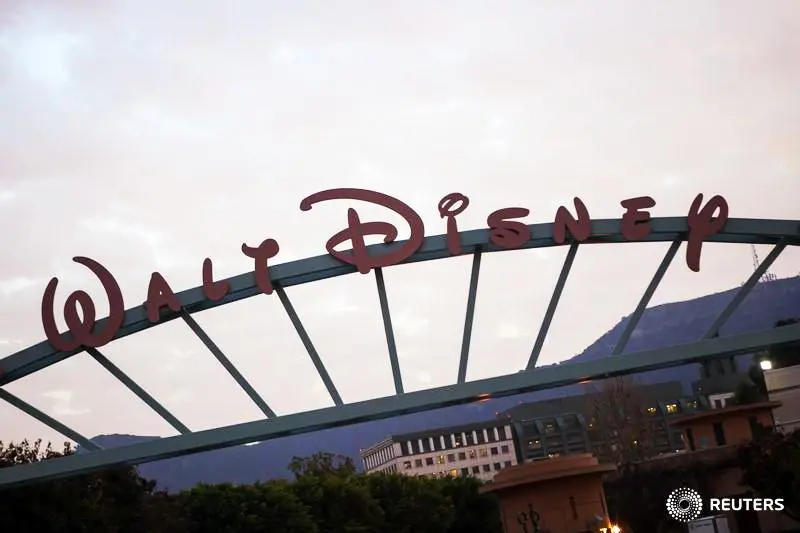PHOTO
NEW YORK - Walt Disney’s decision to recast itself as Netflix with theme parks looks scary. The House of Mouse is set to assimilate $52 billion of Twenty-First Century Fox's assets. Chief Executive Bob Iger also has to steady ESPN, deal with declining TV networks and potential "Star Wars" fatigue while building video-streaming products to reach viewers directly. That alone is a costly endeavor. Disney's free cash flow will plummet some $4 billion between its 2018 and 2019 fiscal years, reckon Bernstein analysts – an almost 30 percent decline. Iger’s decision to pull the company’s programs from Netflix by the end of this year also means it’ll forfeit licensing revenue.
On top of that, netting a sizable enough audience to match its now arch-rival’s more than 100 million of global subscribers is no easy feat – even though Disney’s nameplate and sizable library should ensure instant recognition.
Meanwhile, its sports network’s woes continued. Disney may have managed to beat overall estimates for its first-quarter earnings, unveiled on Tuesday, thanks in part to a 14 percent rise in operating income at its theme parks. But ESPN lost more viewers on top of the previous quarter’s 3 percent decline – and advertising revenue fell 11 percent year-over-year.
ESPN is set to launch its own video-streaming service in the spring, but it needs leadership. Former President John Skipper abruptly resigned just before Christmas, citing substance-abuse problems. That’s emblematic of Disney’s wider troubles with succession planning. Iger has extended his contract four times and there is still no obvious candidate to take the reins.
Even one of Disney’s most successful recent franchises is stumbling. “Star Wars: The Last Jedi” brought in $200 million less at the box office than analysts expected in the United States and Canada, according to the Wall Street Journal. That may not bode well either for the Han Solo spinoff due this May or for the two new trilogies in the works – the latest, announced on Tuesday, to be written by the creators of “Game of Thrones.”
All this is before having to cope with other TV stations in decline – including the cable networks it’ll get from Fox. Iger’s many challenges will make the next several years a hair-raising ride.
CONTEXT NEWS
- Walt Disney on Feb. 6 reported fiscal first-quarter earnings of $4.4 billion. Results included a $1.5 billion benefit as a result of recent U.S. tax cuts. Adjusted earnings of $2.9 billion were 22 percent higher than the same period a year earlier. At $1.89 per share, earnings beat the consensus estimate of sell-side analysts of $1.61 per share, according to Thomson Reuters data.
- Revenue for the quarter was just shy of $15.4 billion, compared with the consensus estimate of $15.5 billion.
- Disney on Dec. 14 agreed to buy certain assets from Twenty-First Century Fox for $52.4 billion in stock.
(Editing by Antony Currie and Martin Langfield)
© Reuters News 2018
On top of that, netting a sizable enough audience to match its now arch-rival’s more than 100 million of global subscribers is no easy feat – even though Disney’s nameplate and sizable library should ensure instant recognition.
Meanwhile, its sports network’s woes continued. Disney may have managed to beat overall estimates for its first-quarter earnings, unveiled on Tuesday, thanks in part to a 14 percent rise in operating income at its theme parks. But ESPN lost more viewers on top of the previous quarter’s 3 percent decline – and advertising revenue fell 11 percent year-over-year.
ESPN is set to launch its own video-streaming service in the spring, but it needs leadership. Former President John Skipper abruptly resigned just before Christmas, citing substance-abuse problems. That’s emblematic of Disney’s wider troubles with succession planning. Iger has extended his contract four times and there is still no obvious candidate to take the reins.
Even one of Disney’s most successful recent franchises is stumbling. “Star Wars: The Last Jedi” brought in $200 million less at the box office than analysts expected in the United States and Canada, according to the Wall Street Journal. That may not bode well either for the Han Solo spinoff due this May or for the two new trilogies in the works – the latest, announced on Tuesday, to be written by the creators of “Game of Thrones.”
All this is before having to cope with other TV stations in decline – including the cable networks it’ll get from Fox. Iger’s many challenges will make the next several years a hair-raising ride.
CONTEXT NEWS
- Walt Disney on Feb. 6 reported fiscal first-quarter earnings of $4.4 billion. Results included a $1.5 billion benefit as a result of recent U.S. tax cuts. Adjusted earnings of $2.9 billion were 22 percent higher than the same period a year earlier. At $1.89 per share, earnings beat the consensus estimate of sell-side analysts of $1.61 per share, according to Thomson Reuters data.
- Revenue for the quarter was just shy of $15.4 billion, compared with the consensus estimate of $15.5 billion.
- Disney on Dec. 14 agreed to buy certain assets from Twenty-First Century Fox for $52.4 billion in stock.
(Editing by Antony Currie and Martin Langfield)
© Reuters News 2018





















